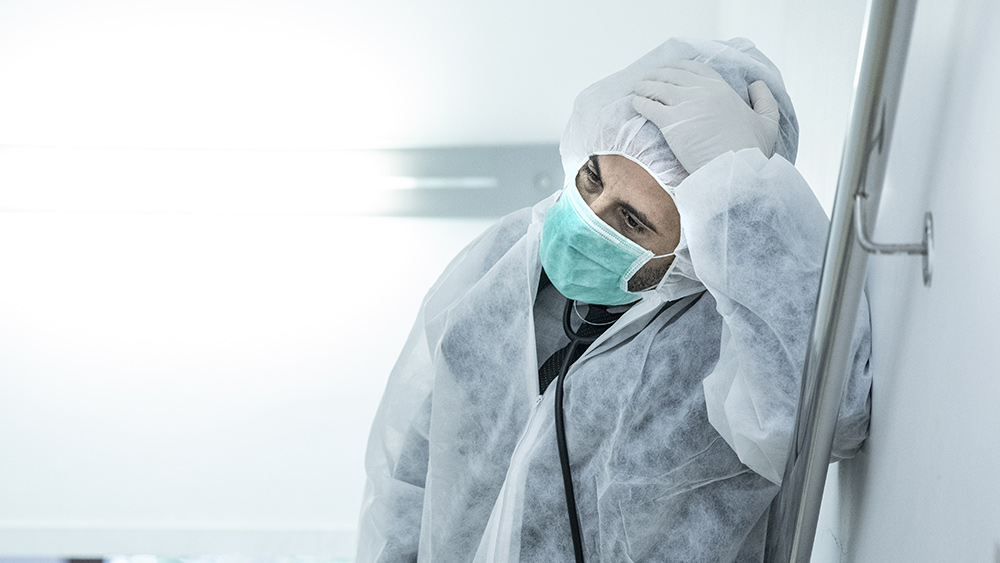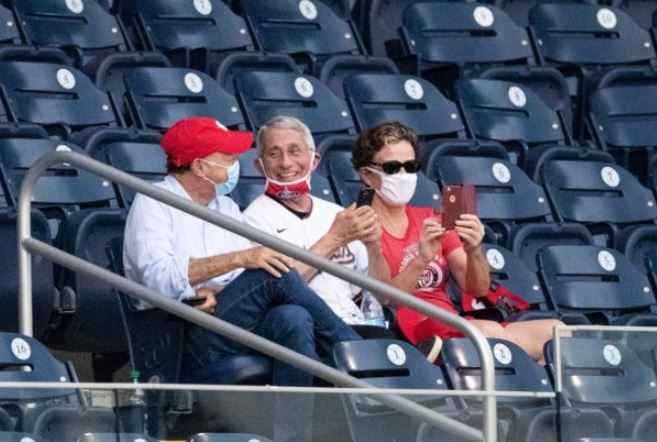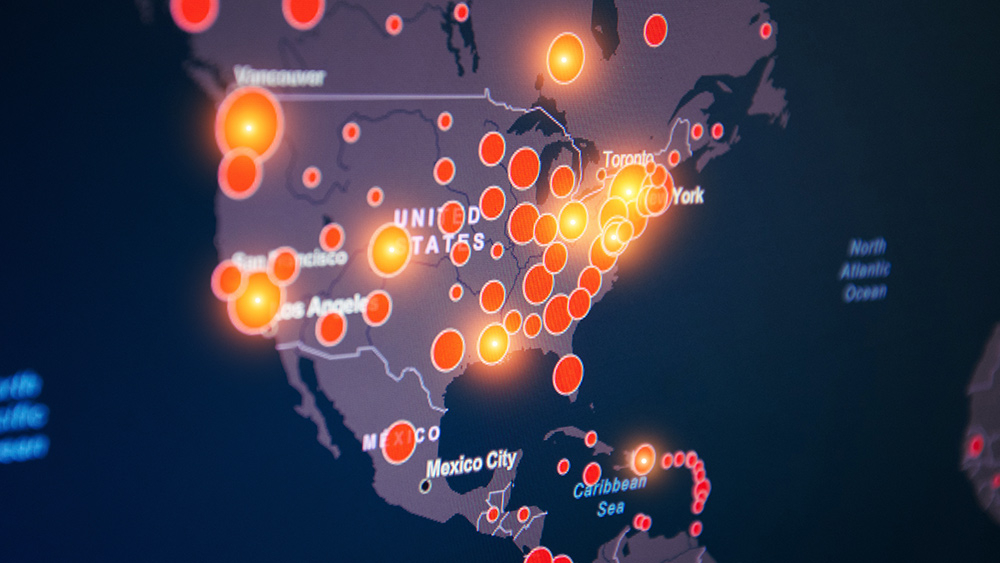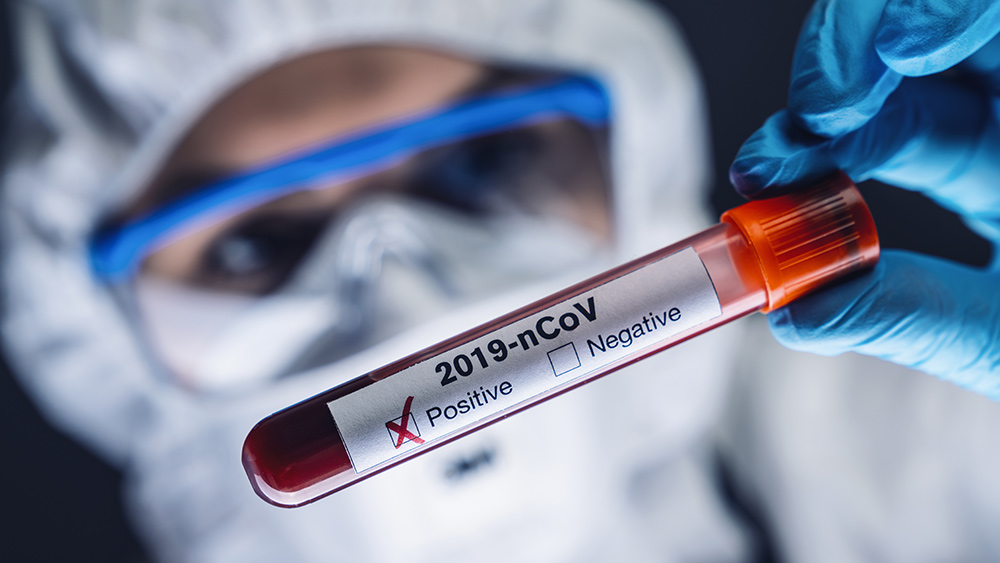Chinese Communist subversion of the WHO undermined global pandemic response
05/01/2020 / By News Editors

The World Health Organization (WHO) is facing a flurry of criticism for its response to the CCP virus pandemic, and much of the problem can be attributed to the growing influence the communist regime in China has on the organization.
(Article by Petr Svab republished from TheEpochTimes.com)
Critics mainly point out that the WHO was too slow to recommend travel restrictions and some other preventive measures, and also that the agency accepted information from China at face value, despite numerous red flags.
While China experts were sounding alarms about a coverup, the WHO continued to praise China’s response and never warned the world that data coming from the regime was suspect.
WHO, an agency of the United Nations, has long been swayed by Beijing’s political preferences. Its current head, Dr. Tedros Adhanom Ghebreyesus, is a former member of a Maoist group in Ethiopia.
As The Epoch Times previously documented, China has been increasing its power over U.N. institutions for years. Beijing’s clout has now gone so far, it undermines WHO’s basic functions, such as providing timely and accurate information about the world’s health situation.
Case in point: the CCP virus.
Timeline
The CCP virus, commonly known as the novel coronavirus, broke out in the central Chinese city of Wuhan around November 2019, before spreading across China and the world.
As of April 14, there are some 2 million confirmed cases of the virus, which causes the disease COVID-19. Almost 130,000 deaths have since been attributed to the disease worldwide.
The WHO has said that Chinese authorities first informed it about the outbreak on Dec. 31, 2019. While that would have been a golden opportunity to mitigate the spread of the virus worldwide, the WHO conveyed none of its information to the world that day.
It appears that only one country had its ear close enough to the ground at that point to respond meaningfully—Taiwan.
By Dec. 31, the island nation off the coast of mainland China had already started monitoring travelers coming on flights from Wuhan. Taiwan authorities also told the WHO that day that Taiwanese doctors had learned from their mainland counterparts that health care workers had been falling ill with the mysterious new virus.
That was crucial information, since it indicated the virus was spreading from person to person. The WHO, however, ignored it, Taiwan officials later said.
It was to be expected of the WHO to ignore that warning. The CCP considers Taiwan a breakaway province and has pressed the U.N. to ignore Taiwan’s existence as an independent country.
Taiwan has been denied membership in the WHO, whose personnel are prohibited from using documents or even information from official Taiwan sources without prior special permission, according to a leaked 2010 WHO memo.
Such permission would involve “coordination with the Permanent [UN] Mission of China in Geneva,” the memo stated.
While Taiwan was getting its response to the virus underway, the situation in Wuhan was quickly deteriorating.
On Jan. 2, The Epoch Times reported on the efforts of the CCP to block information about the outbreak and the high levels of anxiety spreading throughout the city.
A Wuhan Health Commission directive prohibited all medical facilities in the city “from publicizing medical information without permission,” and online discussions about the outbreak were quickly censored. On Jan. 1, Wuhan police said that they had detained eight locals who had spread “rumors” about the outbreak.
As it turned out, at least some of the suppressed whistleblowers were doctors who had tried to warn colleagues about the new virus.
Panicked locals cleared Wuhan pharmacies of surgical masks and over-the-counter preventive Chinese medicines. China expert and physician Tang Jingyuan warned a government coverup might exacerbate the spread of the virus.
Meanwhile, the WHO remained silent.
By Jan. 3, the WHO was informed by Chinese authorities of 44 cases, 11 of them severe. That was likely the tip of the iceberg.
On Jan. 5, The Epoch Times reported, citing multiple experts, that the CCP had likely been covering up information about the virus, which was detrimental to controlling the outbreak.
That day, the WHO commented for the first time about the outbreak, disclosing that it had known about an outbreak of a “pneumonia of unknown cause” in Wuhan for five days and recommending that it should be “handled prudently.” But the agency didn’t recommend “any specific measures for travelers.”
Instead, it did the opposite.
“WHO advises against the application of any travel or trade restrictions on China based on the information currently available on this event,” it said.
Five days later, the WHO addressed the outbreak again.
“From the currently available information, preliminary investigation suggests that there is no significant human-to-human transmission, and no infections among health care workers have occurred,” the agency stated, contradicting information that had been provided by Taiwan.
“WHO does not recommend any specific health measures for travelers,” WHO said. It instead released general information on how to deal with virus infections.
On Jan. 12, WHO said there was “no clear evidence of human-to-human transmission,” slightly adjusting its language.
“Preliminary investigations conducted by the Chinese authorities have found no clear evidence of human-to-human transmission,” WHO announced two days later, never expressing a shadow of a doubt about the Chinese communist regime’s official statements.
At this time, Taiwan had already arranged for its own fact-finding team to travel to Wuhan.
“They didn’t let us see what they didn’t want us to see, but our experts sensed the situation was not optimistic,” Taiwanese government spokesperson Kolas Yotaka told NBC News.
Soon after the team returned, Taiwan initiated testing and reporting requirements for its hospitals.
“Looking after itself, not listening to the WHO in this particular case, I think actually helped,” said Dr. William Stanton, vice president of the National Yang-Ming University of Taiwan and a former U.S. ambassador to China, in a recent interview with The Epoch Times’ Jan Jekielek.
The WHO only managed to get its team to Wuhan for “a brief field visit” on Jan. 20.
On Jan. 17, the U.S. Centers for Disease Control and Prevention (CDC) sent personnel to screen travelers coming from Wuhan to three major U.S. airports—JFK, Los Angeles International, and San Francisco International, which were getting the highest traffic from the outbreak’s epicenter. More airports were added to the list in subsequent weeks.
On Jan. 20, China confirmed human-to-human transmission.
On Jan. 23, the day the CCP put Wuhan on lockdown, the WHO announced that, despite some internal disagreements, it wouldn’t declare the outbreak a “public health emergency of international concern.”
By then, cases had already started to crop up around the world, including in the United States.
Three days later, Taiwan banned flights from Wuhan and arranged special flights to return its people from the city.
On Jan. 28, while visiting China, the WHO’s Tedros urged the countries of the world “to remain calm and not to overreact,” expressing confidence in the CCP’s epidemic control, Chinese state-run media reported.
On Feb. 3, three days after President Donald Trump prohibited foreigners who had recently been in China from traveling to the United States, Tedros voiced opposition to travel bans, saying measures that would “unnecessarily interfere with travel and trade” weren’t needed.
In a March 20 tweet, Tedros repeated CCP propaganda, saying that “for the first time, #China has reported no domestic #COVID19 cases yesterday.” While for China experts, the news all but confirmed that the CCP numbers were fake, Tedros touted it as “an amazing achievement, that gives us all reassurance that the #coronavirus can be beaten.”
Statistical modeling, eyewitness accounts, and documents provided to The Epoch Times have shown that Chinese authorities concealed the true scale of the outbreak in Wuhan and other parts of China.
Tedros, however, repeatedly praised China for “transparency” in its response to the outbreak—something experts and government officials around the world have emphasized as being the most lacking.
The Victims of Communism Memorial Foundation, a nonprofit established in the 1990s by the U.S. government, published on April 10 a detailed timeline of the CCP’s coverup of the epidemic and of the WHO’s culpability in it. The organization also announced it would be adding the global CCP virus deaths to the historical death toll of communism.
“The WHO has abdicated its responsibility to the entire world population in order to carry water for the Chinese Communist regime,” the foundation’s executive director, Marion Smith, said in a release.
A Personal Connection
While part of the CCP’s influence over the WHO was coming from the U.N., another part of it was played by Tedros himself.
Tedros is a former Politburo member of the Tigray People’s Liberation Front, a Maoist group that had waged a guerrilla war in the 1980s against the Soviet-backed Mengistu regime in Ethiopia.
“The nearest you would put [Tigray’s ideology] to would be North Korea today,” according to Trevor Loudon, an expert on communist movements and front groups.
In the early 1990s, as the regime at the time lost financial support from the collapsing Soviet Union, a coalition of Tigray and other groups overthrew it and ruled the country until 2019.
While on the surface, the government embraced market reforms and democratic elections, ideologically it remained socialist, Loudon said, especially in terms of foreign policy.
“They still keep up their foreign communist connections,” he said in a telephone interview with The Epoch Times.
Tedros, a former health and later foreign minister of the African nation, naturally maintained strong ties with the CCP, embracing projects such as the “Belt and Road” initiative, which serves the CCP to expand its geostrategic influence.
Tedros scored the WHO’s top post in 2017 with strong backing by the CCP’s lobby, despite allegations that he had covered up three cholera outbreaks during his tenure as health minister.
“Chinese diplomats had campaigned hard for the Ethiopian, using Beijing’s financial clout and opaque aid budget to build support for him among developing countries,” Sunday Times columnist Rebecca Myers wrote at the time.
Tedros denied covering up the cholera outbreaks, saying it was just “acute watery diarrhea.”
He has proven adept at playing into Western sensitivity to accusations of oppression.
When an adviser to his British opponent for the WHO leadership brought up the cholera coverups, he accused him of having a “colonial mindset.”
When Taiwan called him out for ignoring its information about the CCP virus, Tedros accused Taiwan of racist attacks.
That accusation seems to have done little to deflect the criticism; a petition calling for Tedros’s resignation has garnered nearly a million signatures.
Meanwhile, the Trump administration is considering cutting off its funding to the WHO—the United States is by far the largest benefactor of the organization, providing more than $110 million a year in regular funding, plus hundreds of millions more in voluntary contributions.
In Stanton’s view, the WHO, “as currently constituted,” should lose its funding.
“I think we have to take a much harder line in terms of how the WHO has handled this virus,” he said. “Because it’s clearly been simply a mouthpiece, in my view, of the PRC [People’s Republic of China] government.”
Read more at: TheEpochTimes.com
Tagged Under: China, communism, communist, coronavirus, corruption, deception, evil, government, health, lies, pandemic, Twisted, virus, WHO
RECENT NEWS & ARTICLES
Pandemic.News is a fact-based public education website published by Pandemic News Features, LLC.
All content copyright © 2018 by Pandemic News Features, LLC.
Contact Us with Tips or Corrections
All trademarks, registered trademarks and servicemarks mentioned on this site are the property of their respective owners.





















